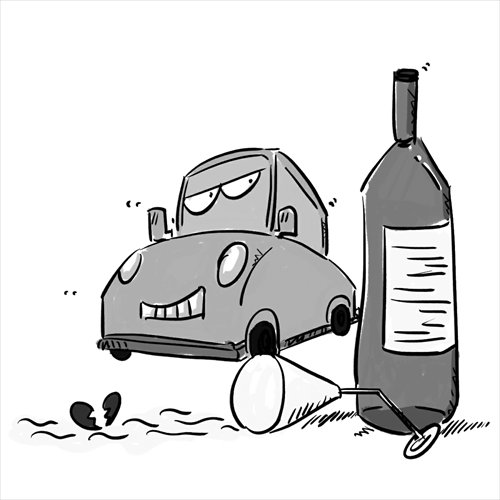
Illustration: Chen Xia/GT
I was not surprised to hear the news about a mother who scapegoated herself for her son-in-law after he killed someone while drunk driving in Shanghai. The background of the story is that the elderly mother opposed her daughter and son-in-law's plan to have a second child because the responsibility of raising their 2-year-old daughter rested primarily on her. The last thing she wanted was another baby to raise while the parents are off gallivanting.
Because of her decision, the son-in-law angrily drove off in his car after drinking and killed someone on an electric bicycle. His mother-in-law felt so guilty about making him angry that, according to media, she begged them to take her.
An online poll following the tragic incident shows that most netizens agree that grandparents have no responsibility to take care of their grandchildren. However, in reality, Chinese grandparents usually wind up doing all the child-rearing themselves.
For decades if not centuries, it has been taken for granted by a majority of Chinese society that elderly parents should be responsible for raising their grandchildren. From small villages to big cities, you will see toddlers being accompanied by their grandparents while their mother and father are working.
In urban settings like Shanghai, such children are fortunate that their parents will come home at the end of the day to play with them. But in the countryside, where many migrant peasants leave home for months or years at a time to work in other cities, there is now a phenomenon called "left-behind children," where tens of millions of youth will grow up without parents.
According to numerous studies about children who are raised by their grandparents, such kids grow up without strict discipline, which results in poor behavior. As grandparents tend to coddle and dote on their grandchildren, entire generations of spoiled "little emperors" are the net result.
China's new two-child policy, which kicked off at the beginning of 2016, is intended to help remedy this "generation of petulance" by giving siblings to spoiled offspring. But the larger issue of who will raise both children still looms.
In the West, where adults usually live apart from their parents, children are raised exclusively by their own mother and father. The decision to have more than one child in Western countries depends entirely on their physical and financial ability. But here in China, we feel shocked when we meet parents who do all the housework and child-rearing alone without grandparents.
Thus, the success of the new two-child policy will in large part be dependent on how many grandparents are willing to help raise another baby. But this is a double-edged sword, for if the current generation of grandparent-raised youth are notorious for their ill-nature, then wouldn't a second child mean double the number of spoiled children?
Indeed, how ironic that in the case of the mother-in-law, that father was also acting like a monster by getting drunk and killing someone because he didn't get what he wanted.
It's small wonder to witness adult Chinese acting like children in public when their demands are not satisfied - and then depend on their elderly parents to save them. Even those with higher educations and elite professions often still expect to be protected by their parents. We see it now and then in the news, especially among the nouveau riche when they break the law.
As a mother myself, I'm not optimistic about the outcome of the new second-child policy. With so much poor parenting occurring in China's single-child families, I just don't see why absentee parents would want yet another brat.
Raising a responsible child can be regarded as the greatest contribution a family can make to society. But what is the point of conceiving if you can't dedicate your life to raising your child yourself?
The opinions expressed in this article are the author's own and do not necessarily reflect the views of the Global Times.

